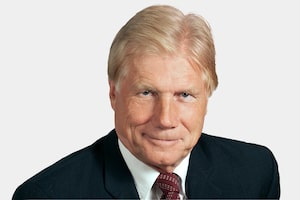When you think about it, any opposition party would or should be delighted to have a governing party doing as poorly as today's Conservatives. They're in the low 30s in support, which, by historical standards, is woeful for a party in power. With those numbers, they're there for the taking.
Despite doing dismally, the Grits trail by only a few points. But that didn't stop a few members - Nervous Nellies, as Jean Chrétien used to call them - from talking up the idea of a possible coalition with the NDP. That sent out a signal of distress, which is exactly the kind of signal a party vying for power should not be sending. So it was smart of Michael Ignatieff and Jack Layton to put the rumours to rest yesterday.
To write Mr. Ignatieff off on the basis of serious problems in his first 18 months as Leader is illogical. Given all the other opposition leaders who stumbled through the early mists, applying such a yardstick would leave some gaping holes in our history. Stephen Harper wouldn't have become prime minister, nor would have Mr. Chrétien, nor would have Lester Pearson, nor would have Robert Borden. They were all duds at the dawn.
Bearing that in mind, Mr. Ignatieff should tell the naysayers to go jump in a fake lake.
What was irrational about the coalition talk was the suggestion that the situation in any way paralleled the one that led to the merger of conservative parties six years ago.
At that time, the governing party, the Liberals, were close on 50 per cent in the polls. The Progressive Conservatives and the Canadian Alliance were each scoring in the teens. Each was about 30 points behind. The case for a merger was boldly signalled. Today, the spread is about one-fifth of that. By comparison, the case for a merger is flaccid.
The NDP and the Greens are also wise to avoid such talk. Both formations, benefiting from the low-flying Bigs - have Canadians ever been so dissatisfied with both major parties? - are faring nicely.
Jack Layton is the most popular leader at the federal level, probably because he shows the most integrity. His party's support numbers are rock solid. Elizabeth May's Greens, perhaps benefiting from the calamity in the Gulf, are polling better than ever. They're in the low teens and doing far better than that in British Columbia, where she has a good shot at winning a seat.
The Conservative union came about only because of bizarre twists of fate. While Mr. Harper gets legitimate credit for the merger, he was an opponent of it for the longest time, holding the process back. When he became leader of the Alliance in 2002, he continued his reluctance.
But then, by reason of failure, his hand was forced. The turning point was a by-election in the Ontario riding of Perth-Middlesex in 2003. Mr. Harper poured all his resources into that campaign, hoping to show that the party could move ahead viably on its own. He got trounced. The Progressive Conservatives won the seat and Mr. Harper became convinced that union was the only option.
The PCs held a leadership convention. They, too, were hoping to demonstrate that, with a new leader, they could make it on their own. But that convention was an utter failure. It elected Peter MacKay, but owing to a secret backroom deal with David Orchard, the victory was poisoned and the party left the convention hobbled.
It was a dream result for Mr. Harper, one of the many strokes of fortune with which he has been blessed. The Tories had virtually no choice but to opt for merger and Mr. Harper was left as the most credible candidate to lead a newly unified party.
Although it hardly appears as such, Mr. Ignatieff can consider himself fortunate as well. Were it not for the repeated mistakes of the Harper team since Christmas, the Conservatives would be bordering on 40 per cent. They were in the high 30s before the Christmas break but dropped five points owing to the decision to shut down Parliament. They have yet to recover from that day.
 Lawrence Martin
Lawrence Martin